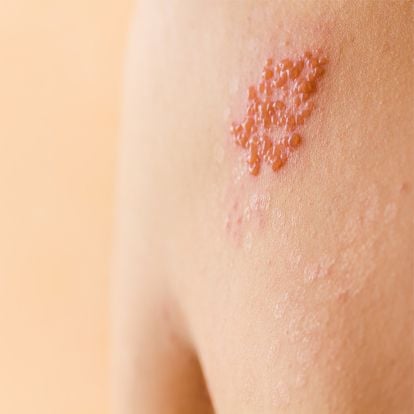 OVERVIEW
OVERVIEW
According to the CDC, 1 in 3 people will likely develop Shingles in their lifetime, and one million cases of Shingles occur annually in the United States. Almost every adult born before 1980 has had Chickenpox and is thus at risk for developing shingles later in life.
What are Shingles?
Shingles are caused by the varicella-zoster virus, which also causes Chickenpox. To have Shingles, you first had to have the chickenpox virus at some point in your life. After you have the virus that causes Chickenpox, it is stored in nerve tissue near the spinal cord and brain. This inactive stored virus can become active later in life.
The risk of developing Shingles greatly increases after 50, though Shingles occasionally occurs in younger adults. There isn’t a medical explanation for why the varicella virus becomes active again other than the virus may reactivate when immunity declines. Immunity can decline with age or decrease from medications or disease.
Interestingly, children who receive varicella (Chickenpox) vaccine rather than the chickenpox virus are much less likely to develop Shingles later in life. Most people only get Shingles once, but it is possible to have it more than once in a lifetime. People with an active Shingles rash can spread the varicella virus to people who have never had the virus or haven’t been vaccinated with the varicella-zoster vaccine
What are the Symptoms of Shingles?
Though the same virus causes Shingles and Chickenpox, the resulting rash appears on different body parts. While Chickenpox causes red, itchy blisters that may start in different areas of the body and spread to the entire body, Shingles usually appear in one area and are associated with significant pain.
The symptoms of Shingles include:
- Painful, itchy, or tingly areas on one side of the body before a rash appears
- A painful rash on one side of the face or one side of the body, usually with red blisters.
- Blisters that last 7-10 days and may take 2-4 weeks to fully clear up
- General symptoms of illness like enlarged lymph nodes, fever, upset stomach, chills, and headaches.
How are Shingles Diagnosed?
A medical provider will review your medical history to determine if you’ve likely had Chickenpox and look at areas with the rash. The medical provider may take a swab of the liquid in the rash area or a sample of the skin cells in the area with the rash and blisters to test and determine if you have Shingles.
Most Common Treatments for Shingles
No treatment can cure Shingles. Current options for treatment include:
Antiviral medications
Antiviral medication options include acyclovir, famciclovir, and valacyclovir. These medications can decrease the severity of Shingles and possibly shorten the time you have symptoms of the illness.
Pain medicine
Over-the-counter pain management options like acetaminophen or ibuprofen can help control pain, or your doctor may prescribe other medications like gabapentin, lidocaine, or codeine for more severe pain.
Common household remedies
Calamine lotion, oatmeal baths, and cold compresses are options to decrease itchiness.
Vaccines
Vaccines will not treat active Shingles, but Shingrix is a vaccine that can prevent Shingles and is recommended for adults over the age of 50.

 OVERVIEW
OVERVIEW
